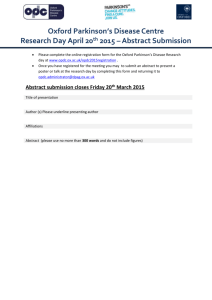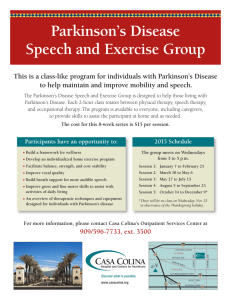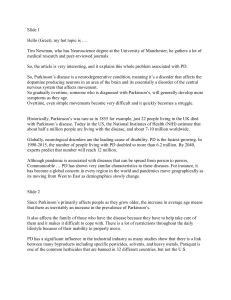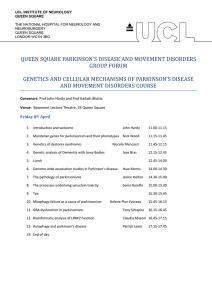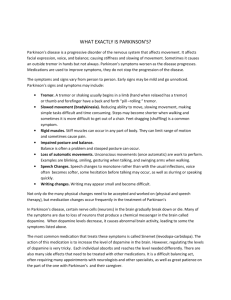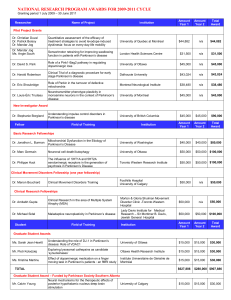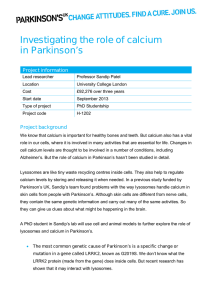C U R E
advertisement
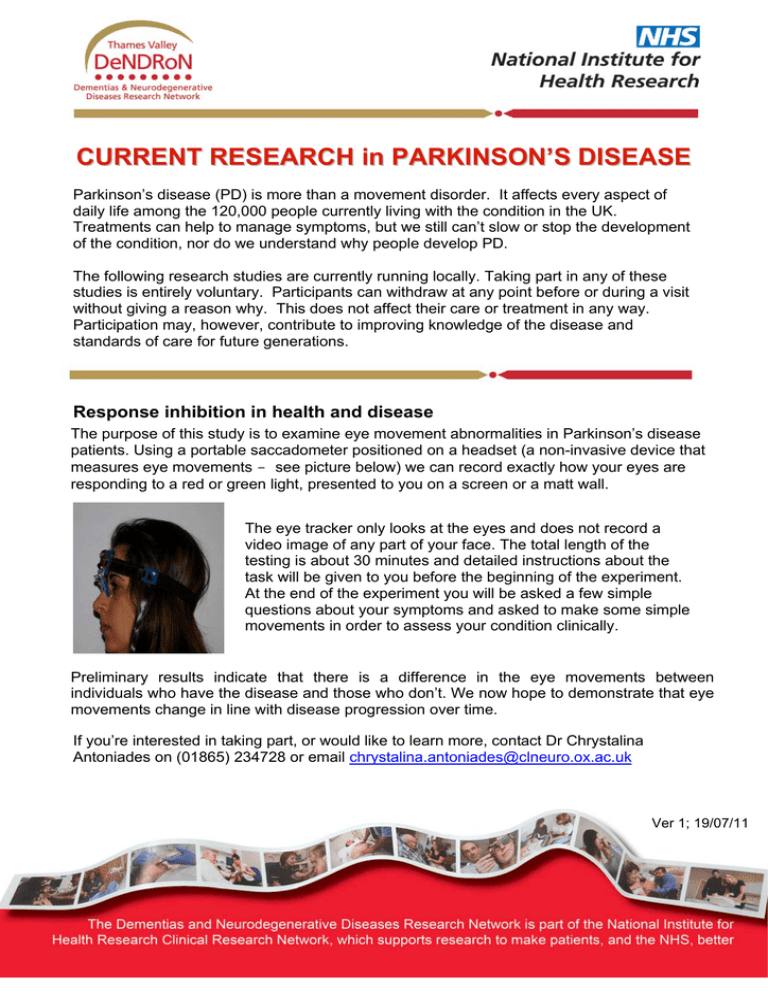
CURRENT RESEARCH in PARKINSON’S DISEASE Parkinson’s disease (PD) is more than a movement disorder. It affects every aspect of daily life among the 120,000 people currently living with the condition in the UK. Treatments can help to manage symptoms, but we still can’t slow or stop the development of the condition, nor do we understand why people develop PD. The following research studies are currently running locally. Taking part in any of these studies is entirely voluntary. Participants can withdraw at any point before or during a visit without giving a reason why. This does not affect their care or treatment in any way. Participation may, however, contribute to improving knowledge of the disease and standards of care for future generations. Response inhibition in health and disease The purpose of this study is to examine eye movement abnormalities in Parkinson’s disease patients. Using a portable saccadometer positioned on a headset (a non-invasive device that measures eye movements - see picture below) we can record exactly how your eyes are responding to a red or green light, presented to you on a screen or a matt wall. The eye tracker only looks at the eyes and does not record a video image of any part of your face. The total length of the testing is about 30 minutes and detailed instructions about the task will be given to you before the beginning of the experiment. At the end of the experiment you will be asked a few simple questions about your symptoms and asked to make some simple movements in order to assess your condition clinically. Preliminary results indicate that there is a difference in the eye movements between individuals who have the disease and those who don’t. We now hope to demonstrate that eye movements change in line with disease progression over time. If you’re interested in taking part, or would like to learn more, contact Dr Chrystalina Antoniades on (01865) 234728 or email chrystalina.antoniades@clneuro.ox.ac.uk Ver 1; 19/07/11 Understanding the early pathological pathways in Parkinson’s Disease At present, there is no definitive test for Parkinson's disease (PD) and no way of identifying people who are at greater risk of developing the condition. Diagnosing PD before the earliest movement symptoms appear, combined with more effective treatments that tackle the root causes of nerve cell death, will be crucial steps towards a cure. A major study is currently underway to understand the very earliest steps in Parkinson’s with the eventual aim of generating drugs to halt the disease before symptoms appear. This groundbreaking project is funded by The Monument Trust, one of the Sainsbury Family Trusts. The research team includes world-class scientists from the University of Oxford and two Medical Research Council Units working across a number of different disciplines, including genetics, neurology and imaging. The success of this project is dependent on the participation of individuals with PD, whose contribution to this cutting edge research is highly valued. People with a diagnosis of PD made in the last 3 years will be eligible for study participation which will involve several outpatient visits to their local district general or regional hospital. Individuals will be given the opportunity to consent to a blood test for DNA analysis and a clinical assessment with a neurologist during the outpatient visits. The study team is also recruiting people without PD of similar ages, and relatives of people with PD. This is the largest clinical Parkinson’s study ever carried out in the UK, and is running across 8 hospital sites in the Thames Valley: Amersham, Banbury, Kettering, Milton Keynes, Newbury, Northampton, Oxford and Reading. Participation will be on an entirely voluntary basis. If you’re interested in taking part, or would like to learn more, call Joanna Glennon on (01865) 234892 or visit http://opdc.medsci.ox.ac.uk/patient-involvement If the studies described here aren’t suitable, but you would like to hear about future research opportunities, please register your interest by calling your local NHS research team on (01865) 234892. Ver 1; 19/07/11
